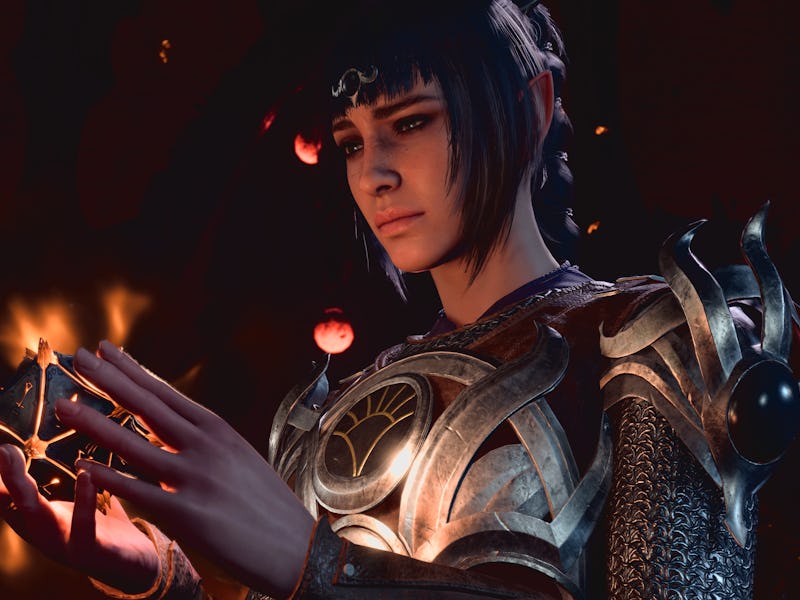Hasbro Is Doubling Down On Games After Baldur’s Gate and Monopoly Go
D&D exec says games is an "integral part of Hasbro's strategy going into the next 100 years."

After finding unprecedented success in 2023, toy and gaming company Hasbro has locked in its master plan for replicating triumph in the gaming space: doubling down on translating its properties to gaming.
In an interview with GameIndustry.biz, Wizards Of The Coast’s head of digital product development Dan Ayoub said that the brand’s parent company has made a massive billion-dollar investment in their internal game studios, an effort to maintain the same heights they did with titles like Monopoly Go and Baldur’s Gate 3. The money is funding the company’s four development studios.
“I've seen the company put its actions around its words in terms of building these studios around strong leaders, thinking about the long game as well,” Ayoub said.
Monopoly Go is a smash hit on mobile platforms.
The leadership that Ayoub references are industry veterans who know a thing or two about great games. Atomic Arcade, for example, is headed by people who worked on the Batman: Arkham series. Archetype is being led by Bioware veterans who worked on Star Wars: Knights Of The Old Republic and the Mass Effect trilogy.
Few companies had a better 2023 than toy maker Hasbro. Monopoly Go, a mobile version of the popular board game, earned $2 billion in revenue 10 months after the game’s launch. Baldur’s Gate 3 on the other hand garnered universally positive reception and made Hasbro more than $90 million. Its roster of internal gaming studios currently working on projects includes Atomic Arcade, a North Carolina studio, the Montreal-based Invoke Studios, and two Austin, Texas-based studios, Skeleton Key and Archetype.
Both games were produced by licensing out Hasbro’s IP to external studios: Scopely, a reputable developer in the free-to-play mobile space, and Larian Studios, longtime masters of the isometric CRPG genre. Even though both games found success through external partners, Ayoub posits Hasbro paid close attention to what made these hits special. It’s a formula they hope to replicate with their next big gaming swing based on their properties: a G.I. Joe game based on the katana-wielding Snake Eyes, a fictional character from that world.
Baldur’s Gate 3 made Hasbro over $90 million.
“One of the great things we took from the success of Baldur's Gate 3 is that people really, really like a great, well-executed D&D game,” Ayoub said. “With Snake Eyes, while it's not a new IP, it's hopefully going to be a shot in the arm to the G.I. Joe franchise and we can do some new things and express it in different ways in video games than we have traditionally."
Hasbro’s plan, at least as Ayoub puts it, is solid. Ensuring that the talent is there to take some of their most lucrative properties and turn them into great games is how you get a game like Marvel’s Spider-Man or Baldur’s Gate 3. Ayoub also promises that the games currently being developed by their studios will “stay in the oven as long as it needs to,” another refreshing bit of awareness concerning how to gestate game development as a corporate entity.
But there’s one aspect of development that Hasbro should take into account — talent retention. In 2023, Hasbro saw not one, but two devastating layoffs across their various divisions. Larian’s Sven Lincke said that nearly everyone his team worked with at Hasbro subsidiary Wizards Of The Coast is no longer with the company. Hasbro did not immediately respond to a request for comment.
2010’s Transformers has proved the Hasbro-owned franchise is a great match for gaming.
As many developers have mentioned amid record-high, industry-wide layoffs, retaining talent is key to creating consistently great games. There’s a reason why games like Final Fantasy VII: Rebirth and The Legend Of Zelda: Tears Of The Kingdom shine. Because developers were given the latitude to comfortably learn the tools and the ins and outs of the projects and IPs they’re working on, strengthening their craft and chemistry with colleagues.
Snake Eyes becoming gaming’s new Batman is an exciting prospect. The Transformers are long overdue for a return to the glory days of the Activision Cybertron games from the early 2010s. However, securing top talent must go hand-in-hand with supporting their studios through the parent company’s financial hardships.
Ayoub says that gaming “is an integral part of Hasbro's strategy going into the next 100 years,” and that the company intends to “make sure that everything that comes out is top quality, is authentic, and is something we can build upon.” Here’s to hoping they’re willing to weather whatever economic storms lay ahead to follow through with its lofty plans in gaming.